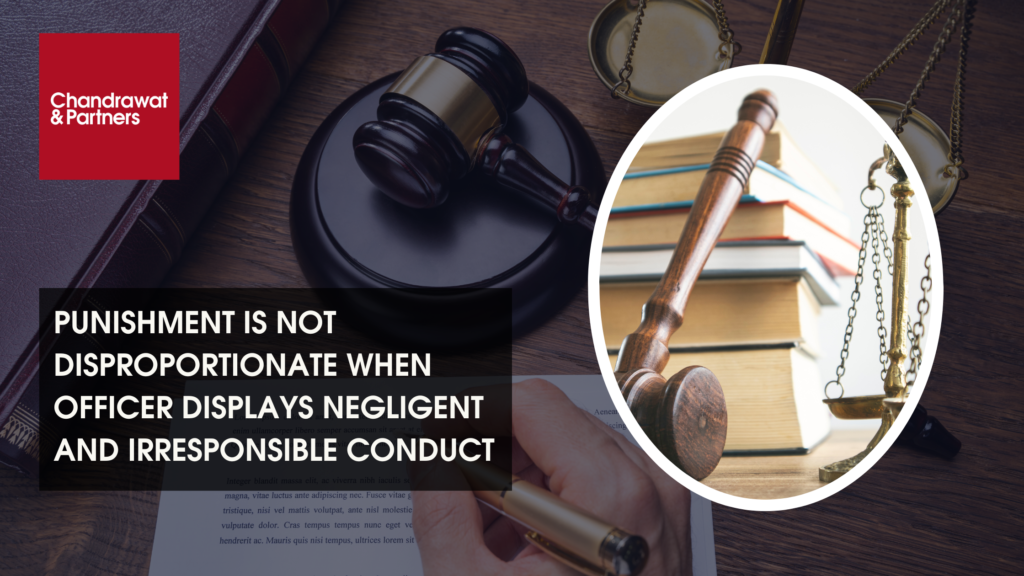Home > Recent Judgements > Punishment Is Not Disproportionate When Officer Displays Negligent And Irresponsible Conduct
Jan 15, 2025
INTRODUCTION
In the case between Babrey Singh vs Union of India and Ors, the case arose when a police officer, employed by the Delhi Police, was found guilty of dereliction of duty and negligent behavior. When the officer’s wrongdoing was investigated internally, it was discovered that he had repeatedly neglected his duties, disregarded the obligations assigned to him, and failed to follow protocol. Follow the necessary investigation, the police department made the decision to fire the officer. The officer contested the termination, arguing that the penalty was out of proportion to the claimed transgression.
KEY ISSUES
- Is it always proportional to dismiss a public servant for negligence even when it is established?
- Should intention and personal circumstances of the officer be considered while determining punishment?
- Does this jurisprudence establish a nexus between chronic negligence and permanent damage to public confidence?
- Does the facet of deterrence take precedence over rehabilitation and social reform?
- How do the courts ensure that disciplinary measures succeed in serving institutional integrity yet are just to the individual?
JUDGMENT
The ruling states that the various decisions of the Supreme Court of India are against the background of maintaining that disciplinary proceedings are indispensable to maintain the integrity and efficacy of public services. The judgment reiterates that the nature of misconduct and its impact on the organization and society at large should be taken into account while evaluating whether the disciplinary punishment is adequately justified. This decision also underlined the significant responsibilities undertaken by public servants, more particularly, those in the law enforcement. By upholding the stand taken by the Delhi High Court that reckless and thoughtless behavior cannot be condoned and that an appropriate punishment is necessary, the sanctity of public service has been retained.
OBSERVATION
While hearing the case, the Delhi High Court put into force the police’s role of upholding the law and enhancing public trust. According to Justice, officials must hold the highest standards of ethics and professionalism. The hearing had to grant strict action, without exception, against any errant officials, especially when carelessness violates department functionality or public safety. The court observed the following points:
- The court remarked that it was not just the officer’s misjudgment; it was a callous attitude that denoted a total lack of accountability and responsibility.
- Police are the custodians of public trust. Neglect on their part creates a risk to lives and diminishes public faith in the police.
- The court held that punishment cannot be excessive unless it offends the conscience of a court; in this instance, it opined, the severity of the breach merited dismissal.
- The court stressed the importance of discipline serving the purpose of deterring other members of the force and that it is necessary to maintain standards of conduct.
For more information or queries, please email us at
enquiries@chandrawatpartners.com





